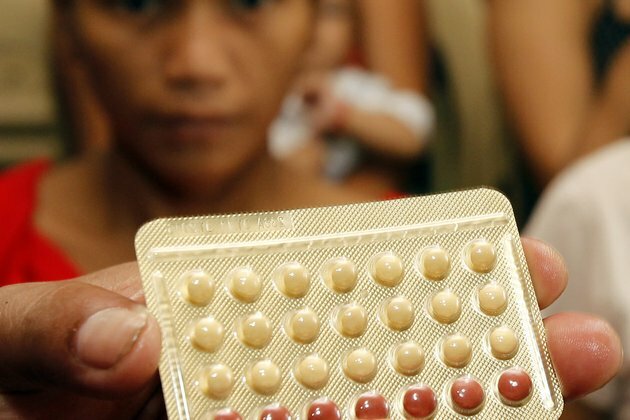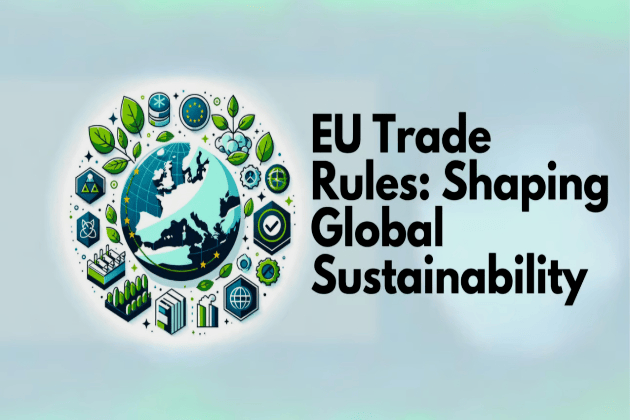Inside the Philippines' long journey towards reproductive health
The Conversation
14 May 2019, 11:19 GMT+10

On January 9 2017, Philippine President Rodrigo Duterte signed an executive order calling for universal access to modern family planning methods. The document also called for accelerated implementation of the countrys Reproductive Health Law.
Popularly known as the RH law, the measure was passed in 2012 but was suspended by the Supreme Court, following objections from religious groups that alleged the law violated the rights to religion and free speech.
Dutertes order was welcomed even by some of his fiercest critics. Human Rights Watch, for instance, called it a bright spot in the administrations otherwise horrendous human rights record via its abusive war on drugs. Aside from promoting family planning, the RH law covers wide-ranging provisions for emergency obstetric care, sex education, and maternal and child health.
But the very fact that such seemingly anodyne health matters even have to be affirmed attests to the contested nature of reproductive health issues in the Philippines. Just one day after Duterte signed the executive order, Luis Cardinal Tagle, Manilas archbishop, reiterated that the Church is against any law that promotes both natural and artificial family planning methods.
Politically and morally contentious
Viewed in a broader historical frame, the ongoing debate is a continuation of the Philippines long journey towards reproductive health - and its having been turned into a political and moral issue by various actors. Its also inexorably bound to the Churchs long-running enmeshment in the politics of a country where 80% of the people are, at least nominally, Catholic.
The Catholic Churchs opposition to population control and artificial contraception goes beyond the Philippines shores. Pope Paul VIs _Humanae Vitae _ (1968) made the Churchs stance a matter of dogma, and it has since been affirmed by successive popes.
Initially, the Churchs stand didnt seem to have much of an impact on Philippine policy. Just a year after Humanae Vitae, then-president Ferndinand Marcos established a Population Commission that sought to control population growth.
And in 1973, a new, Marcos-backed constitution called on the government to achieve and maintain population levels most conducive to the national welfare.
But the situation changed in the 1980s, when the people turned against Marcos corrupt and authoritarian government (which, it should pointed out, ultimately proved ineffective in its population control efforts). The Church was instrumental in the 1986 EDSA People Power Revolution that deposed and forced Marcos into exile.
The new president, Cory Aquino, was much more pliant to the Churchs wishes. The 1987 Cory Constitution enshrined the life of the mother and the life of the unborn from conception. Tellingly, it omitted any reference to population control.
A succession of presidents would continue to toe the Churchs line. Gloria Arroyo - another beneficiary of a Church-backed revolution - would be the most ardent,making it state policy to promote only natural family planning methods. This was despite scientific consensus that such methods are ineffective, and the fact that a majority of Filipinos actually support artificial contraception.
Regardless of presidents acquiescence to the Church, support for an RH law slowly but steadily grew. In 1999, the first of many RH bills was filed in Congress. Ironically, it was Corys son Benigno Aquino III (Arroyos successor), who ultimately got the law passed.
Duterte, who took over from Aquino in 2016, was equally vocal in his support for reproductive health. In his first national address, he stressed that the RH law should be implemented so that couples especially the poor will have freedom of informed choice on the number and spacing of children.
Growing population, rising HIV
The politics of the RH Law notwithstanding, its rationale in the Philippines are quite clear.
Population growth remains very high. From 31.7 million when Marcos took office in 1965, it is expected that there will be 105 million Filipinos by the end of 2017 - an astounding tripling in just over 50 years.
Economists agree that while poverty is a complex phenomenon, rapid population growth and high fertility rates, especially among the poor, do exacerbate poverty and make it harder for the government to address it. In 2012, 30 economists from the University of the Philippines affirmed the role of the RH bill in population growth and consequently in poverty reduction.
In addition, there is an alarming increase in HIV infection rates that makes the Philippines one of the few countries to actually register growing prevalence. HIV prevention is actually the health ministrys main rationale for condom distribution and promotion. But that too is unacceptable to anti-RH advocates who argue that it would breed immorality.
Moving forward
Some observers have noted that the Churchs infuence in Philippine politics is waning, citing its failure to stop the RH law. But while its power may have diminished, it remains an important political actor.
In the same month as Dutertes executive order, the Department of Education announced that it would block the distribution of condoms in schools, caving in to pressure from the Church. The RH Law itself, in an attempt to appease the Church, includes natural methods and responsible parenthood in its language, and mentions religious convictions seven times.
Is there a chance that the Church will change its position? Pope Francis recent pronouncement that contraception is a lesser evil than abortion - at least in cases of Zika - raised some hope. Ultimately, however, his statement was rightfully seen as a change in tone - not in substance.
Judging from the Philippine bishops latest rhetoric, which casts contraceptive use as immoral, its highly unlikely that the Church will change its mind.
Even so, the fact that two presidents - belonging to two opposing political camps - have supported reproductive health raises hopes that it is becoming a post-political, post-ecclesiastical issue.
After a long journey, theres reason to hope that the RH law will finally be implemented in full in the Philippines, and with it, badly-needed population and HIV control programs.
 Share
Share
 Tweet
Tweet
 Share
Share
 Flip
Flip
 Email
Email
Watch latest videos
Subscribe and Follow
Get a daily dose of Philippine Times news through our daily email, its complimentary and keeps you fully up to date with world and business news as well.
News RELEASES
Publish news of your business, community or sports group, personnel appointments, major event and more by submitting a news release to Philippine Times.
More InformationInternational
SectionPoland to continue covering Ukraine’s Starlink costs, says deputy PM
WARSAW, Poland: Deputy Prime Minister Krzysztof Gawkowski confirmed over the weekend that Poland has been covering the cost of Ukraine's...
Opinion - Israel's government exploited hostages
Israel sustained the West's support for its slaughter in Gaza for 15 months only through an intensive campaign of lies. It invented...
Pentagon to cut 5,400 jobs amid Trump’s federal workforce reduction
WASHINGTON, D.C.: The Pentagon announced this week that it will cut 5,400 jobs as part of President Donald Trump's plan to shrink the...
Newsom urges Congress for $40 Billion to aid LA wildfire recovery
SACRAMENTO, California: California Governor Gavin Newsom is urging Congress to approve nearly US$40 billion in federal assistance to...
USDA scholarship for underserved students from Black colleges on hold
WASHINGTON, D.C.: A U.S. government scholarship program designed to help students from underserved and rural areas attend historically...
US oil tariff may force foreign producers to pay $10 billion annually
WASHINGTON, D.C.: A proposed 10 percent U.S. tariff on oil imports could deal a US$10 billion annual blow to foreign producers, particularly...
Business
SectionBP shifts focus back to fossil fuels, scaling down renewable goals
LONON, U.K.: British Petroleum is set to abandon its ambitious renewable energy expansion targets in favor of a stronger focus on fossil...
Volkswagen partners with CATL to boost China EV expansion
WOLFSBURG, Germany: Volkswagen is strengthening its push into China's electric vehicle (EV) sector by partnering with CATL, the world's...
U.S. stock markets plummet as trade war heats up
NEW YORK, New York - U.S. stocks floundered on Thursday as new trade tariffs were imposed, and those paused were given the green light. ...
Unauthorized vapes surge: US sales hit $2.4 billion despite curbs
LONDON, U.K.: Despite regulatory efforts, unauthorized disposable vapes continue to dominate a significant portion of the U.S. e-cigarette...
Rising costs, supply strains hit producers as US tariff deadline looms
WASHINGTON, D.C.: As the deadline for new U.S. steel and aluminum tariffs approaches, manufacturers across the country are already...
EC to ease sustainability rules to boost business competitiveness
BRUSSELS/LONDON: The European Commission is preparing to ease sustainability reporting requirements for businesses as part of a broader...














